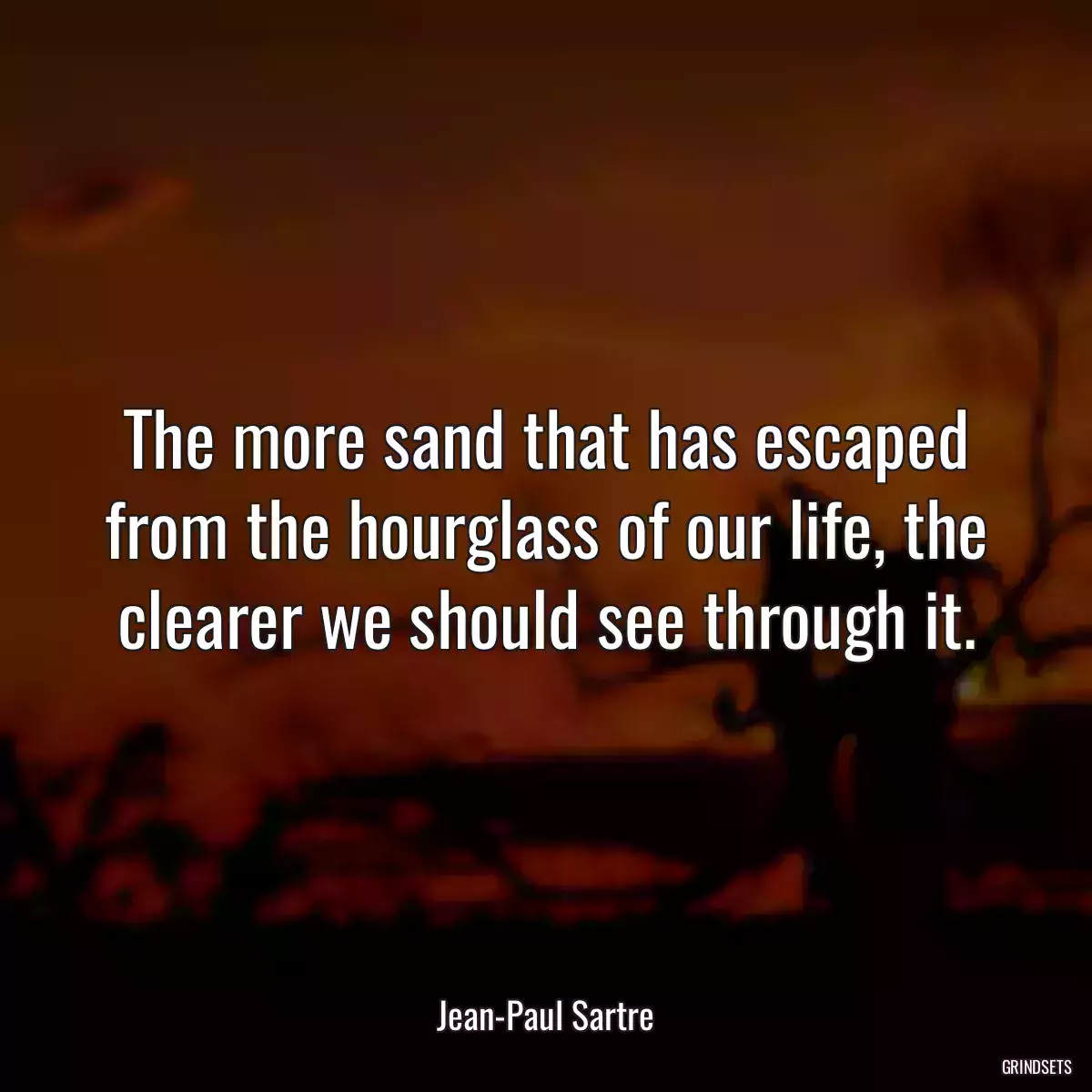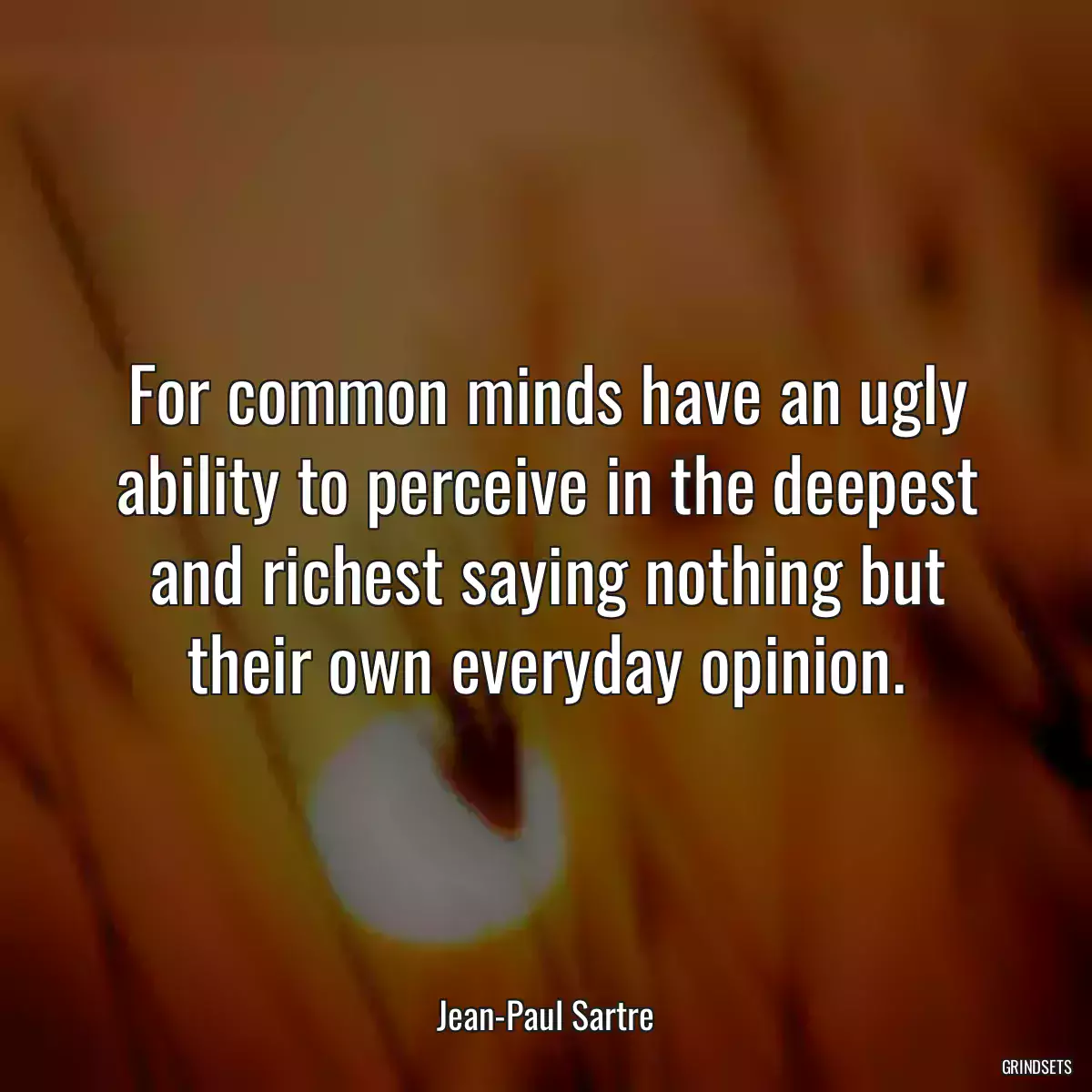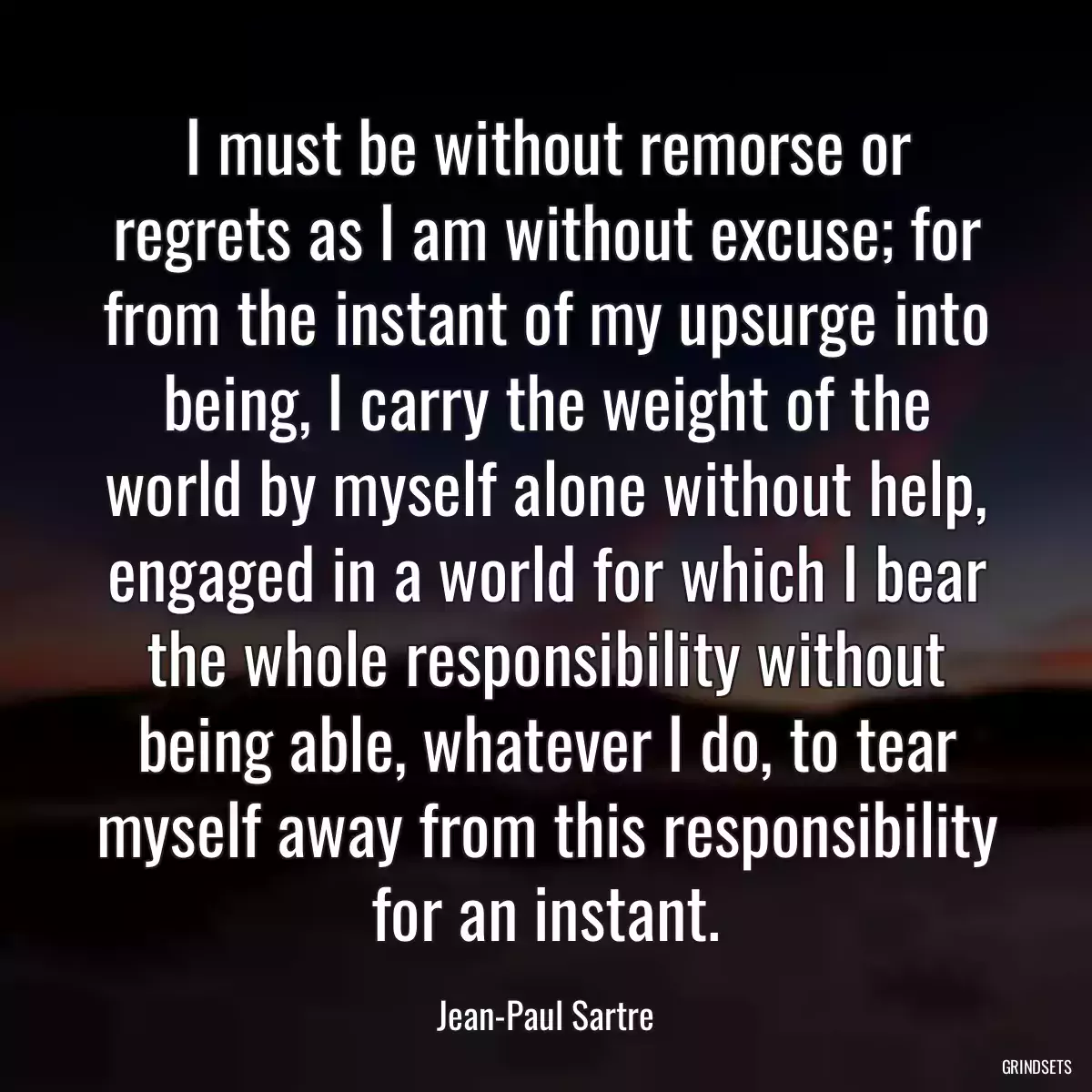
Quotes Jean-Paul Sartre
Find dozens of Jean-Paul Sartre with images to copy and share.

Man is not sum of what he has already, but rather the sum of what he does not yet have, of what he could have.
Commitment is an act, not a word.
Generosity is nothing else than a craze to possess. All which I abandon, all which I give, I enjoy in a higher manner through the fact that I give it away. To give is to enjoy possessively the object which one gives.
You may also like
Generally speaking there is no irreducible taste or inclination. They all represent a certain appropriative choice of being. It is up to existential psychoanalysis to compare and classify
them. Ontology abandons us here; it has merely enabled us to determine the ultimate ends of human reality, its fundamental possibilities, and the value which haunts it.
I construct my memories with my present. I am lost, abandoned in the present. I try in vain to rejoin the past: I cannot escape.
Man can will nothing unless he has first understood that he must count on no one but himself; that he is alone, abandoned on earth in the midst of his infinite responsibilities, without help, with no other aim than the one he sets himself, with no other destiny than the one he forges for himself on this earth.
Man is abandoned on earth in the midst of his infinite responsibilities, without help, with no aim but what he sets himself.
Nicias, do you think you can erase with good deeds the wrongs you committed against your mother? What good deed will ever reach her? Her soul is a scorching noon time, without a single breath of a breeze, nothing moves, nothing changes, nothing lives there; a great emaciated sun, an immobile sun eternally consumes her.

One of the chief motives of artistic creation is certainly the need of feeling that we are essential in relationship to the world.
Evil is the product of the ability of humans to make abstract that which is concrete.
Abjection is a methodological conversion, like Cartesian doubt and Husserlian epoche: it establishes the world as a closed system which consciousness regards from without, in the manner of divine understanding.
How can I, who was not able to retain my own past, hope to save that of another?
Thrown into the atmosphere of action [in 1954], I suddenly understood the kind of neurosis that dominated all my previous work. I had not been able to recognize it before: I was inside. Simone de Beauvoir had guessed these reasons before I did.
First all men must be able to become men by the improvement of their conditions of existence, so that a universal morality can be created. If I begin by saying to them: "Thou
shalt not lie," there is no longer any possibility of political action. What matters first is the liberation of man.
Like morality, literature needs to be universal. So that the writer must put himself on the side of the majority, of the two billion starving, if he wishes to be able to speak to all and be read by all. Failing that, he is at the service of a privileged class and, like it, an exploiter.
Night is falling: at dusk, you must have good eyesight to be able to tell the Good Lord from the Devil.
You may also like

I must be without remorse or regrets as I am without excuse; for from the instant of my upsurge into being, I carry the weight of the world by myself alone without help, engaged in a world for which I bear the whole responsibility without being able, whatever I do, to tear myself away from this responsibility for an instant.
You know how much I admire Che Guevara. In fact, I believe that the man was not only an intellectual but also the most complete human being of our age: as a fighter and as a man, as a
theoretician who was able to further the cause of revolution by drawing his theories from his personal experience in battle.